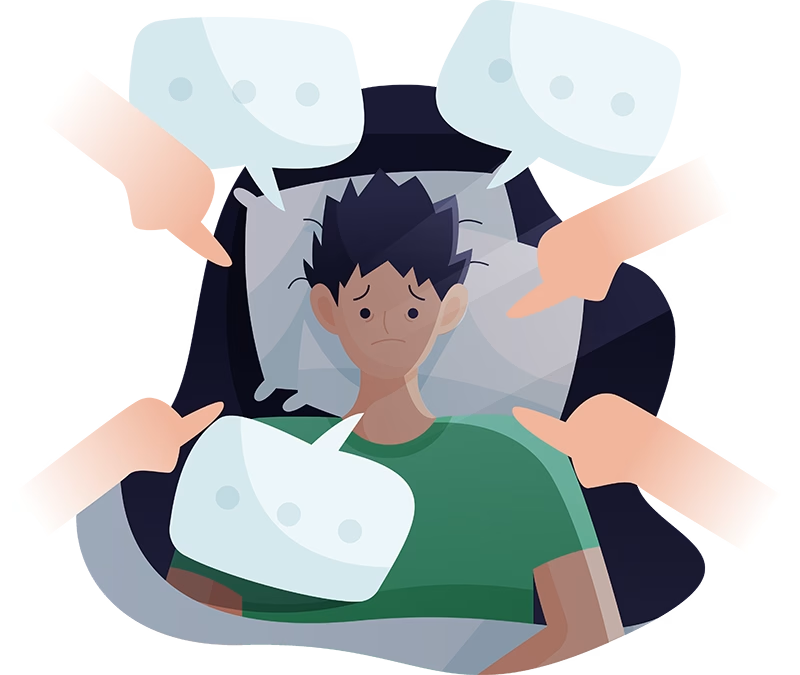Guilt is a natural emotion that arises when we feel we’ve done something wrong or failed to meet our own or others’ expectations. While it can sometimes motivate us to make amends or improve, excessive guilt can take a toll on our mental health, and taking control of guilt becomes an important topic for many.
What is Guilt?
Guilt often stems from actions, thoughts, or behaviors that conflict with our values or the expectations of others. It can arise in a variety of situations, such as:
- Hurting someone, whether intentionally or unintentionally.
- Failing to meet responsibilities or commitments.
- Feeling you have let down family or loved ones.
- Surviving a traumatic event when others did not.
One common source of guilt that affects many people is guilt linked to parental expectations. This type of guilt often develops when individuals feel they haven’t lived up to the hopes, dreams, or cultural standards set by their parents. It can stem from career choices, relationships, or life paths that differ from what was expected. Parental guilt can be particularly challenging, as it is tied to deeply rooted bonds and values.
The Link Between Guilt and Mental Health
When guilt becomes overwhelming or prolonged, it can contribute to mental health problems, such as:
- Anxiety: Constantly overthinking past actions or fearing judgment.
- Depression: Feeling stuck in a cycle of self-blame, hopelessness, or worthlessness.
- Perfectionism: Developing unrealistic expectations for yourself to avoid further guilt, leading to burnout and frustration.
- Shame: Internalizing guilt in a way that negatively impacts your sense of self-worth.
- Obsessive-Compulsive Behaviors: Struggling with compulsions or rituals to “make up” for perceived wrongs.
Unchecked guilt can act as a barrier to emotional well-being, making it harder to move forward and live authentically.
Taking Control of Guilt
Taking control of guilt involves understanding its origins, addressing its impact, and reframing how you respond to it. Here are some steps to help regain balance:
1. Recognize Guilt as a Signal
Guilt often serves as a sign that something needs attention. Instead of seeing it as purely negative, use it as an opportunity to reflect:
- What does this guilt tell me about my values?
- Is this guilt rooted in my actions or in unrealistic expectations?
This reflection can help you distinguish between healthy guilt, which encourages growth, and unhealthy guilt, which hinders your well-being.
2. Challenge Unrealistic Expectations
When guilt arises from trying to meet unattainable standards—such as living up to parental expectations—ask yourself:
- Are these expectations fair or realistic?
- Am I prioritizing others’ values over my own?
Acknowledging that you have the right to choose your path can help ease guilt tied to external pressures.
3. Address the Root Cause
If your guilt is tied to a specific event or action, consider what steps you can take to address it. This might involve making amends, having an honest conversation, or creating a plan to prevent similar situations.
4. Reframe Your Self-Talk
Guilt often comes with harsh self-criticism. Replacing negative self-talk with compassionate and constructive perspectives, such as:
- “I made a mistake, but I’m learning from it.”
- “I’m allowed to pursue a life that aligns with my own values.”
5. Prioritize Self-Care
Guilt can be emotionally draining. Focus on practices that nurture your mental health, such as mindfulness, exercise, or spending time with supportive people. Building resilience helps you handle guilt more effectively.
6. Seek Professional Support
If guilt is persistent or interfering with your daily life, consider speaking with a counsellor. A professional can provide tools to help you process guilt and develop healthier ways of coping.
Moving Forward with Strength
Guilt is a natural part of life, but it doesn’t have to define your experiences. By understanding its role, addressing its causes, and practicing self-compassion, you can take control of guilt and use it as a stepping stone for growth and healing.
If guilt is weighing you down, professional support can help. Counseling provides a safe, nonjudgmental space to explore your feelings and regain control of your emotional well-being. Reach out today to begin your journey toward a healthier, guilt-free life.
Ready to begin? Start your online therapy journey today. Book your first session now.




